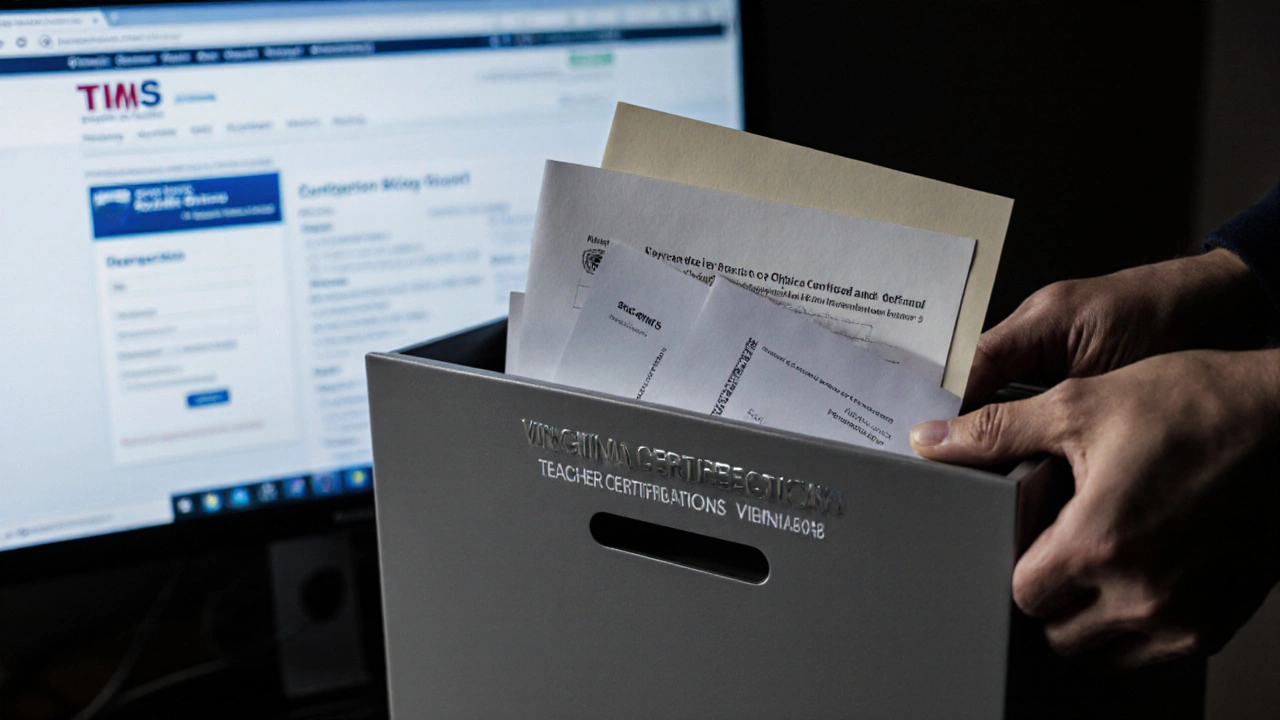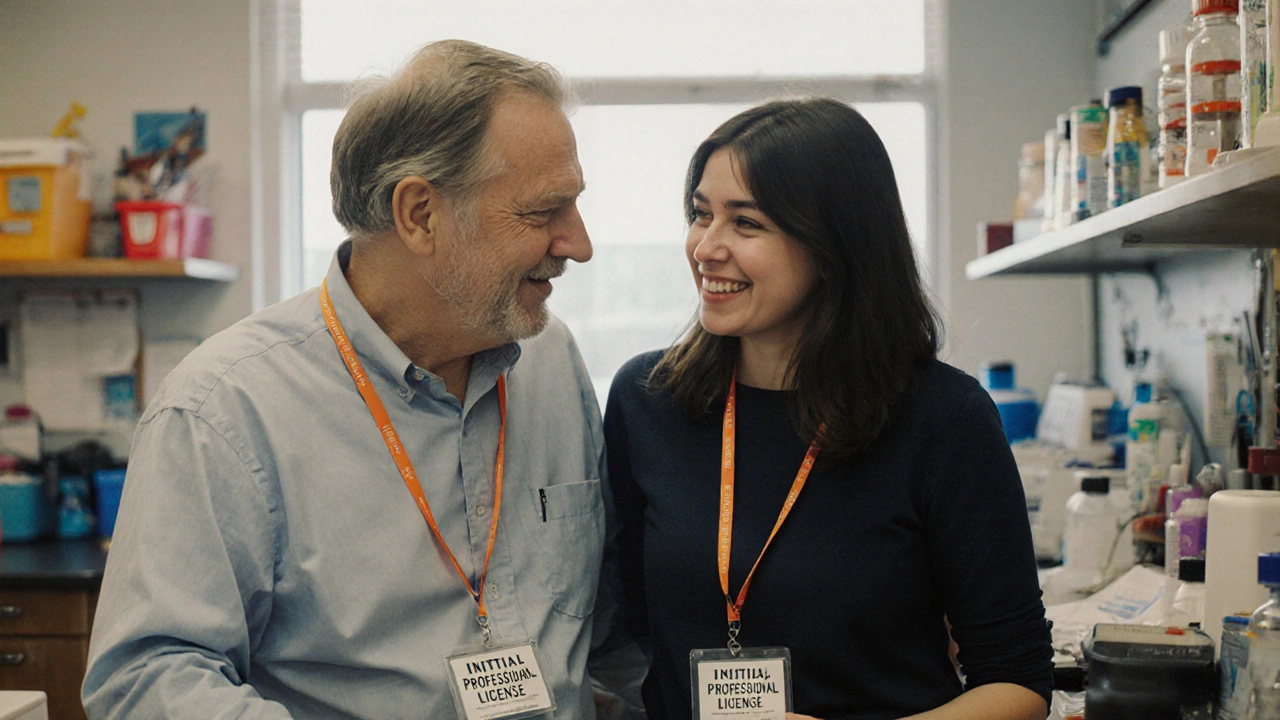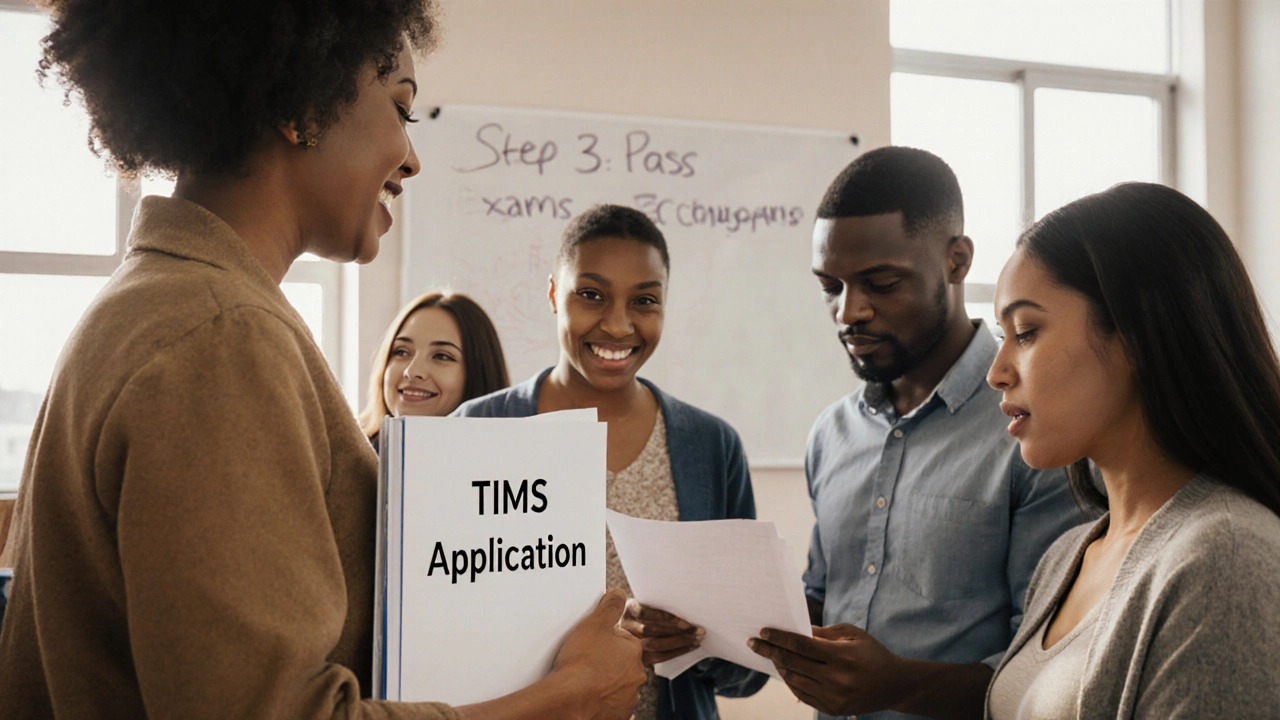Virginia Teaching Certificate Cost Calculator
Calculate Your Certification Costs
ACT: 24+ in each section
Check VDOE for your specific subject requirements
Total Estimated Cost
Estimated Total: $475 - $1,200 depending on number of tests and additional requirements.
Note: Some school districts offer reimbursement for certification costs if you sign a contract to teach for two or more years.
Want to teach in Virginia’s public schools? You can’t just show up with a degree and start standing in front of a classroom. Every public school teacher in Virginia needs a valid teaching certificate. It’s not optional. It’s the law. And if you’re coming from out of state-or even if you just graduated from college and are ready to start teaching-you need to know exactly what steps to take. This guide walks you through the real, current process for getting your teaching certificate in Virginia in 2025.
Step 1: Earn a Bachelor’s Degree
You can’t get a teaching certificate without a bachelor’s degree. It doesn’t have to be in education-many people switch careers and earn degrees in history, math, or biology first. But your degree must be from a regionally accredited college or university. That means schools like UVA, Virginia Tech, or even online programs from institutions like Southern New Hampshire University count. Degrees from unaccredited schools won’t be accepted.
If you’re planning to teach in a specific subject area-say, middle school science or high school English-your degree should include enough coursework in that subject. For example, if you want to teach biology, you’ll need at least 24 semester hours of college-level biology coursework. The Virginia Department of Education (VDOE) has detailed guidelines on what counts for each endorsement area.
Step 2: Complete a State-Approved Teacher Preparation Program
This is where most people get stuck. A bachelor’s degree alone isn’t enough. You need to complete a teacher preparation program that’s approved by the Virginia Department of Education. These programs are designed to teach you how to plan lessons, manage a classroom, assess student learning, and meet Virginia’s standards.
You can complete this in one of three ways:
- As part of your undergraduate degree-many colleges offer education majors with certification built in.
- Through a post-baccalaureate program-if you already have a degree, you can enroll in a one- to two-year program designed for career changers.
- Through an alternative route like the Virginia Teaching Fellows program or a residency program-these are for people who want to teach while they learn.
Whichever path you choose, make sure it’s on the VDOE’s list of approved programs. You can find the current list on their website. If it’s not listed, don’t enroll-you’ll waste time and money.
Step 3: Pass the Required Exams
Virginia requires two sets of exams: the Praxis Core and the Praxis Subject Assessments.
Praxis Core tests your basic skills in reading, writing, and math. You need to pass all three sections unless you qualify for an exemption. You can skip this if you have a qualifying SAT, ACT, or GRE score. For example, a combined SAT score of 1100 or higher (evidence-based reading and math) will waive the Core requirement.
Praxis Subject Assessments are different for every teaching area. If you want to teach elementary education, you’ll take the Praxis Elementary Education: Multiple Subjects test. If you’re aiming for high school chemistry, you’ll take the Chemistry: Content Knowledge test. These exams are tough-pass rates vary by subject, but many candidates fail on their first try. Plan to study. Use official Praxis study guides. Take practice tests. Don’t guess.
Step 4: Apply for Your Initial License
Once you’ve passed your exams and finished your preparation program, it’s time to apply. Go to the Virginia Department of Education website and create an account in the Teacher Information Management System (TIMS). You’ll need to upload:
- Official transcripts from your college
- Proof of passing Praxis scores
- Completion verification from your teacher prep program
- A background check (fingerprints submitted through IDENTICO or another approved vendor)
- A $50 application fee
The processing time is usually 4 to 8 weeks. You’ll get an email when your license is approved. Your initial license is valid for three years and is called the Initial Professional License. It’s not permanent, but it lets you start teaching.

Step 5: Teach and Complete Your Professional License Requirements
Once you’re hired, you’ll be on a three-year clock. During that time, you must:
- Teach full-time for at least two years
- Complete a state-approved professional development plan
- Pass the Virginia Communication and Literacy Assessment (VCLA) if you didn’t already pass the Praxis Core
Most school districts offer mentorship programs to help new teachers through this phase. If your school doesn’t, you can find approved professional development courses through universities or online providers like EdX or Virginia Tech’s Continuing Education program.
After meeting these requirements, you’ll apply for your Professional License. This is the standard, renewable license most Virginia teachers hold. It’s valid for five years and can be renewed with continuing education credits.
What If You’re Already Certified in Another State?
Virginia has reciprocity agreements with many states, but it’s not automatic. If you’re certified in, say, Georgia or North Carolina, you still need to apply through TIMS. You’ll need to send your out-of-state certificate, transcripts, and test scores. The VDOE will review your credentials and tell you what’s missing.
Common gaps include:
- Missing Praxis scores
- Not meeting Virginia’s specific coursework requirements
- Lack of VCLA or equivalent literacy test
If you’re short on credits, you can take additional courses at a Virginia college. Many community colleges offer affordable, targeted classes just for out-of-state teachers.
Special Cases: Teaching in Special Education or Career and Technical Education
If you want to teach special education, you’ll need additional coursework and a specific Praxis exam (like the Praxis Special Education: Core Knowledge and Mild to Moderate Applications). You’ll also need to complete a supervised practicum in special education settings.
For career and technical education (CTE)-like welding, culinary arts, or computer networking-you don’t need a traditional education degree. Instead, you need:
- A bachelor’s degree in your field
- At least five years of full-time work experience
- Passing scores on the Praxis Subject Assessment for your area
CTE teachers often come from industry and are hired because they bring real-world skills. Many school districts actively recruit them.

How Much Does It Cost?
Here’s a realistic breakdown of costs in 2025:
- Praxis Core: $90 per section (or $270 total)
- Praxis Subject Assessment: $120-$160 per test
- Background check: $35-$50
- Application fee: $50
- Professional development courses: $100-$500 (varies)
Total out-of-pocket: roughly $500-$1,200, depending on how many tests you take and whether you need extra courses.
Some school districts offer reimbursement for certification costs if you sign a contract to teach with them for two or more years. Ask during interviews.
Common Mistakes to Avoid
- Applying before you’ve passed all your exams-your application will be rejected.
- Using unofficial transcripts-only official transcripts sent directly from your school count.
- Ignoring the VCLA-if you didn’t pass the Praxis Core, you must pass VCLA before your license is upgraded.
- Waiting until the last minute to apply-processing takes weeks. Don’t wait until the school year starts.
Also, don’t assume your college’s career center will handle everything for you. Many don’t. Take responsibility. Bookmark the VDOE website. Save the TIMS login. Keep copies of every receipt and email.
What Happens After You Get Certified?
Once you have your Professional License, you’ll need to renew it every five years. That means earning 180 professional development points-usually through workshops, college courses, or online training. Many teachers earn these through their school district’s in-service days, which are free.
You can also pursue advanced certifications like National Board Certification, which boosts your salary and opens doors to leadership roles. It’s not required, but it’s respected.
Virginia also offers endorsements in areas like ESL, gifted education, and STEM. You can add these later by taking extra courses and passing the related Praxis exams.
Teaching in Virginia isn’t easy, but it’s doable. Thousands of people do it every year. The system is clear. The steps are set. You just have to follow them.
Can I teach in Virginia without a degree in education?
Yes. You don’t need a degree in education to get certified. You need a bachelor’s degree in any field, plus completion of a state-approved teacher preparation program. Many teachers start with degrees in history, math, or biology and complete their teaching certification through post-baccalaureate programs.
How long does it take to get a teaching certificate in Virginia?
It typically takes 1 to 2 years after earning your bachelor’s degree. If you complete a teacher prep program during your undergraduate studies, you could be certified right after graduation. If you’re switching careers, expect 12 to 24 months to finish coursework, pass exams, and apply. Processing your application adds another 4 to 8 weeks.
Do I need to take the Praxis Core if I have a high SAT score?
Yes, if your SAT score meets Virginia’s exemption threshold. A combined Evidence-Based Reading and Writing and Math score of 1100 or higher waives the Praxis Core requirement. ACT scores of 24 or higher in each section also qualify. Check the VDOE website for the latest exemption rules.
Can I get a teaching certificate in Virginia if I’m from another country?
Yes, but it’s more complex. You’ll need your foreign degrees evaluated by a VDOE-approved credentialing agency like WES or ECE. You must also pass the Praxis exams and meet Virginia’s English proficiency requirements. If your teaching experience is from another country, you may need to complete additional coursework or a supervised practicum.
What if I fail a Praxis exam?
You can retake any Praxis exam after 21 days. Many candidates pass on the second try. Use the official study guides, take practice tests, and consider a prep course. Some community colleges in Virginia offer free or low-cost Praxis prep workshops for aspiring teachers.
Is there a shortage of teachers in Virginia?
Yes. Virginia has ongoing shortages in special education, STEM subjects (especially math and science), and rural areas. If you’re certified in one of these areas, you’ll have more job options and may qualify for loan forgiveness or signing bonuses. Check the VDOE’s annual Teacher Shortage Area List for the most current data.
